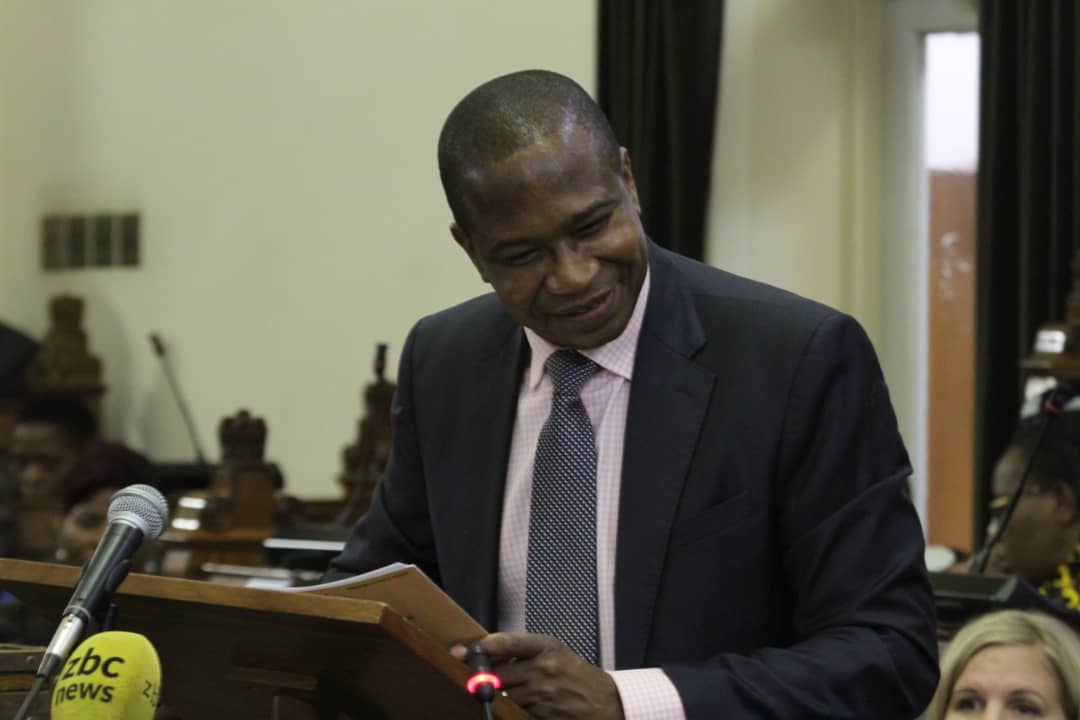Source: Ncube’s electronic tax racks in millions: Zimra – NewsDay Zimbabwe April 22, 2019
By NQOBANI NDLOVU
Zimbabwe’s tax agency, the Zimbabwe Revenue Authority (Zimra) said revenues from the controversial 2% electronic money transfer tax rose by a staggering near 6 000% to $242 million by March compared to $5 million recorded during the same period last year.
Finance minister Mthuli Ncube sparked an outcry in October last year when he introduced the intermediate money transfer tax (IMTT) to increase electronic tax charges from the initial 0,05 cents to 5% for all transactions.
Ncube was forced to review the tax to 2% after prices and services skyrocketed after its introduction. Ncube also announced some exemptions and types of transactions to which the tax would not apply following the outcry.
Zimra board chairperson Callisto Jokonya said the electronic money transfer tax has contributed nearly 15% of its $2,059 billion gross revenue since its introduction in October.
“Intermediate Money Transfer Tax collections amounted to $242,84 million against a target of $150 million. This translates to a positive variance of 88,56%.
The revenue head grew by 5 333,99% when compared to $5,21 million collected in the first quarter of 2018 before policy change.“The revenue head contributed 14,55% of total collections during the quarter,” Jokonya said in a statement accompanying Zimra’s revenue performance report for the quarter ended March 31.
The electronic transfer tax seen as a desperate move to widen revenue streams in the face of lack of budgetary support from international lenders was challenged at the High Court by opposition legislator Tendai Biti and pro-democracy activist Mfundo Mlilo.
President Emmerson Mnangagwa defended the tax as necessary, arguing that it was not designed to hurt ordinary people and companies, but to help the manufacturing sector get funds for retooling and modernisation.
The tax was gazetted in Statutory Instrument 205 of 2018 and introduced by way of amendments to section 22G of the Finance Act (Chapter 23:04) and the
Thirteenth Schedule of the Income Tax Act (Chapter 23:06).Biti and Mlilo, however, argued that Ncube’s statutory instrument still remained unconstitutional and a nullity because a minister cannot, through regulations, amend an Act of Parliament.
Jokonya said Zimra had also recorded revenues of $565,65 million from excise duty collections as a result of an increase in the demand of fuel as shortages
persist.“Excise duty collections increased by 142,44% from $233,32 million realised in the first quarter of 2018. The performance of the revenue head is attributed to
an increase in the duty rate and demand and supply of diesel and petrol,” Jokonya said.“During the quarter under review, diesel imports increased by 9,10% from 208,86 million litres supplied in the first quarter of 2018 to 227,86 million litres.
Similarly, petrol imports increased by 11,19% from 123,67 million litres in the first quarter of 2018 to 137,51 million litres.”
Newer Post
Charumbira calls for truce in boundary row Older Post
‘Economy will resurrect like Jesus’ 
COMMENTS
Eventually he will own all the cash, as long as 2% goes to him each time a parent gives e-money to a child. That part does not create value and must not result in collection of by government. Only when value is created should ZIMRA collect. Baseless taxation is not sustainable as all money goes to the collector, locked in unproductive safe and no one will produce, that collected cash not backed by productivity loses value then wheels stop turning.
Mthuli is only getting more and more valueless RTGS money or surrogate dollars – the mother eating its own child